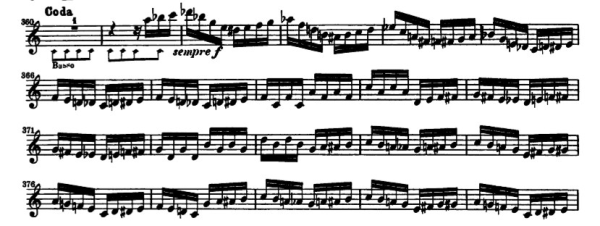Have you struggled with a playing-related injury? Or if not, have you made a commitment to injury prevention? Read on for some ideas on how to deal with or prevent injury from playing.

Every musician has dealt with this at one time or another, even if not every musician is willing to talk about it: INJURY. This is a sensitive topic for many of us; some see injury as a result of musical and professional inadequacy, while to others injury can mean the termination of a career. But, like it or not, we all need to discuss the prevention and treatment of playing-related injuries, since string playing is at inherently high risk for a number of repetitive strain problems.
Common injuries for string players involve the neck and shoulders, wrists and arms, and the back. Shoulder injury is particularly threatening for us since we must hold our arms at extension in order to bow our instruments. Violinists and violists often find themselves contracting the muscles in their left shoulders in order to support their instruments. This in particular can create muscular imbalance which in turn leads to even more physical disruption. And the list just begins there; we could go on to discuss tendonitis, frozen shoulder, nerve entrapment, slipped disks, and even hearing loss. Making music is tremendously rewarding, but it certainly takes its toll on our bodies! So what can we do to ease the strain?
Here are some of my thoughts, which come out of my own experience in dealing with injury:
Practice smart. Be thoughtful, creative, and strategic in your practice technique. Mindless repetition of passages can often be more detrimental than helpful. Use your mind to practice: half the battle is figuring out HOW to practice. For some ideas, check out this book by Simon Fischer: Practice. Frequently you may not even need your instrument to practice; try simply thinking through your orchestra part or studying the score. The more you engage your mind with the music, the better and more efficiently you will find yourself practicing when you do return to the instrument.
Be aware. Be aware of your body as you are practicing. If you stand, make sure you are distributing your weight evenly between your feet and that your feet, hips, and shoulders are in line. If you sit, make sure that your feet are flat on the floor and not crossed or hooked behind the feet of the chair. You should be able to stand up without having to seriously adjust your weight. Watch yourself in a mirror as you practice. Is your body askew as you play? Is there visible tension in your neck muscles while you practice? Maybe you need to reconsider your setup.
Take frequent breaks while you are practicing.
STRETCH!! Stretch before you play, while you take breaks, and in the shower. As you do this, take deep breaths and let yourself relax. Stress and anxiety are tremendous forces which contribute to and exacerbate injury. Besides, letting yourself relax will improve your life in general.
Drink lots of water.
Take your vitamins. Magnesium has been shown to help relax muscles. Try an absorbable magnesium supplement.
If you can manage it, try regular massage, chiropractic, and acupuncture treatments.
For a more comprehensive guide to stretching, self-care, and injury prevention, check out Janet Horvath's book, Playing (less) Hurt.
It can be incredibly frustrating to have to deal with an injury when you would rather be playing. However, a positive attitude is essential. It takes a lot of discipline to be a good musician, and we can certainly use this discipline to our advantage if we apply it to a committed recovery routine. You are not alone! 76% of orchestral musicians have reported having an injury that necessitated taking time off from their career. And, most importantly, don’t give up: I am convinced that great musicianship comes not just from the fingers but most of all from the heart. Giving your body the time and space to recover will enable the heart of your musicianship to shine through even more powerfully!


